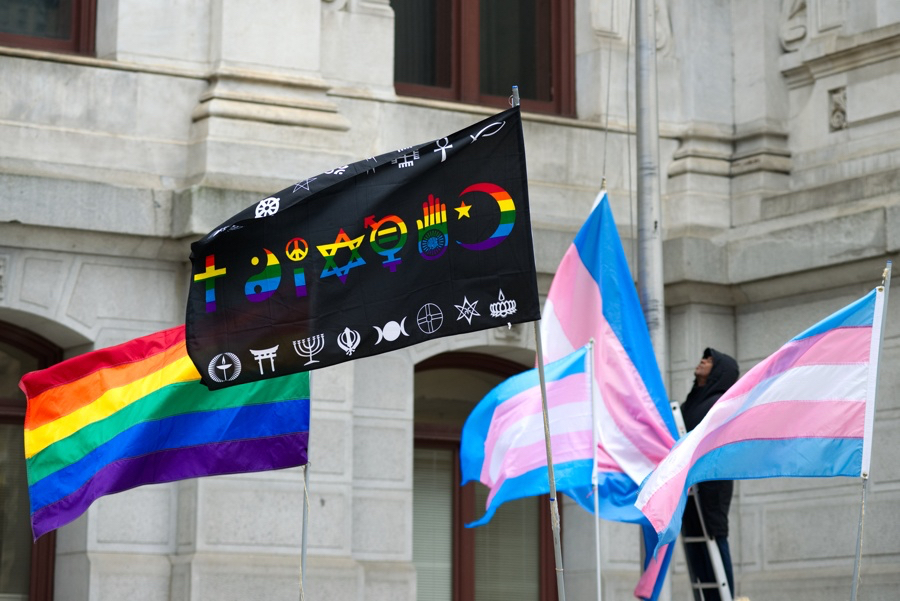A New Study Shows the “Bathroom Bill” Hysteria Is Unfounded
It found no link between transgender protections and crime in Massachusetts.

Photo via iStock.com/Bastiaan Slabbers
If you’re the kind of person who is passionately opposed to the state’s 2016 transgender accommodations law, sometimes called a “bathroom bill,” what you really need to believe is that giving trans people access to the restrooms and locker rooms of their choosing is a threat to public safety. Think of the children, say groups who oppose the anti-discrimination law, like one called Keep MA Safe, who urge you in TV commercials to imagine your daughter, gasp, sharing a restroom with a trans woman.
But a new report from the Williams Institute at UCLA School of Law has found that just isn’t the case. Researchers in the peer-reviewed study pored over police records in Massachusetts communities, comparing those that had “bathroom bill” transgender protections on the books in the two years before the law passed with those that didn’t, and found no link between anti-discrimination rules and the bathroom-related crimes that we we’ve been warned about.
“Opponents of public accommodations laws that include gender identity protections often claim that the laws leave women and children vulnerable to attack in public restrooms,” study author Amira Hasenbush says in a statement. “But this study provides evidence that these incidents are rare and unrelated to the laws.”
“That’s right: Ensuring dignity and respect for our #transgender neighbors in #Massachusetts is NOT a threat to public safety,” Freedom Massachusetts, the group that pushed for the law and is now working to defend it from repeal, wrote in a tweet Wednesday.
And as has been pointed out again and again at this point, it is still illegal to spy on someone in a bathroom, or assault them. In the unlikely event that someone feigns a transgender identity to gain access to a women’s bathroom, and then commits some other crime while inside, they can still be prosecuted for doing so. Is that really all that hard to understand?
“Research has shown that transgender people are frequently denied access, verbally harassed or physically assaulted while trying to use public restrooms,” says Jody L. Herman, another of the study’s authors, also in a statement. “This study should provide some assurance that these types of public accommodations laws provide necessary protections for transgender people and maintain safety and privacy for everyone.”
All of this is important because a ballot question will give Massachusetts voters the chance to repeal the public accommodations law—sometimes called a “bathroom bill”—in November, the first time in the nation such a question has been put to voters statewide. It could be close. Polling has suggested voters are in favor of keeping the law in place, but not by a large margin. Fundraising data shows the pro-trans rights side is much better funded than the opposition: The campaign has about $1 million on hand, according to the State House News Service, while opponents have about $26,000. Expect to see more misguided fear-inducing ads as election day approaches, though.
“Historically, anti-transgender activists wait as long as possible before last-minute funds are provided to pay for misleading TV ads meant to scare voters,” Yes on 3 campaign co-chair Kasey Suffredini tells the News Service. “We must be fully resources [sic] to promote the truth about what this law really does until the very last votes are cast.”


